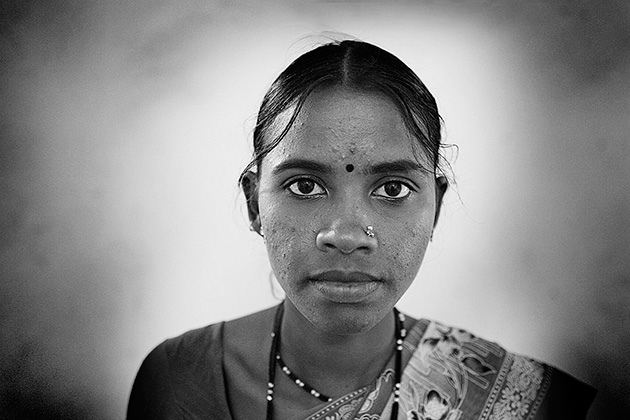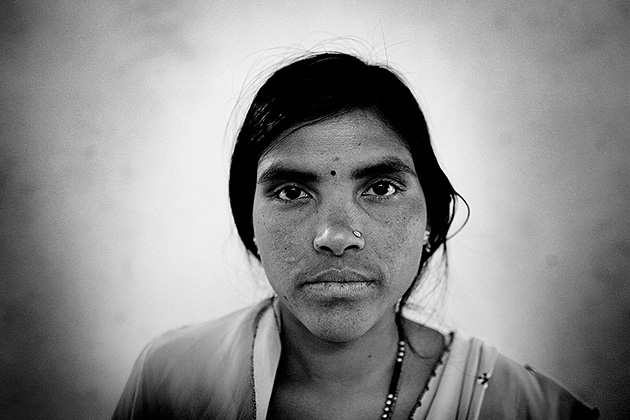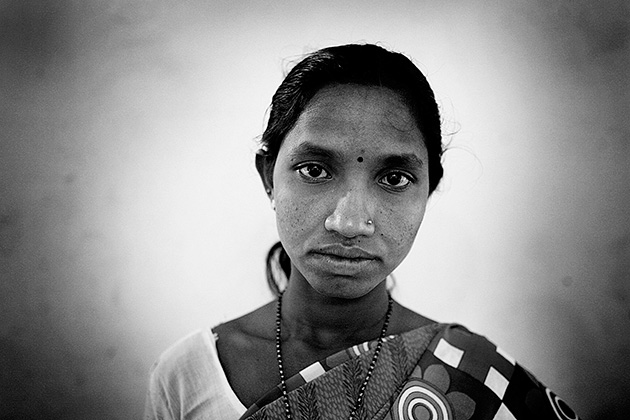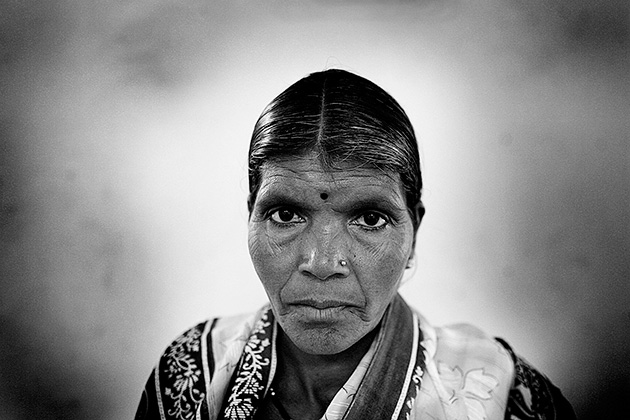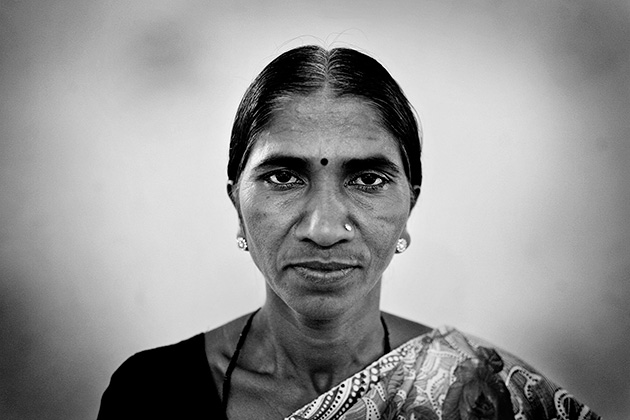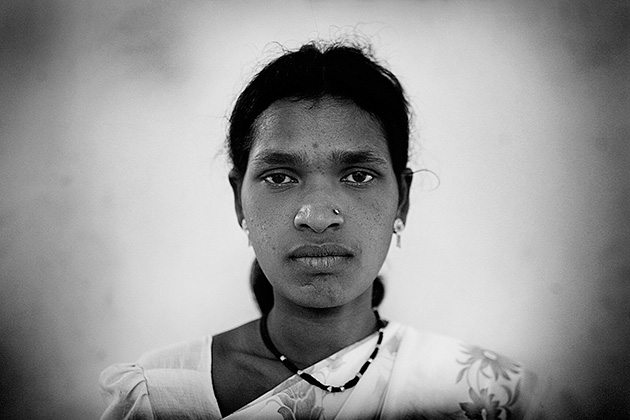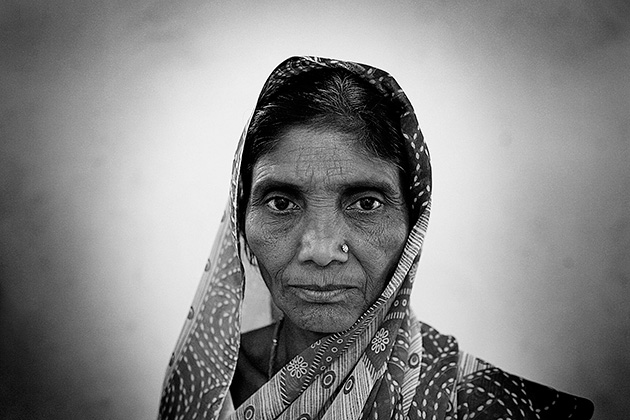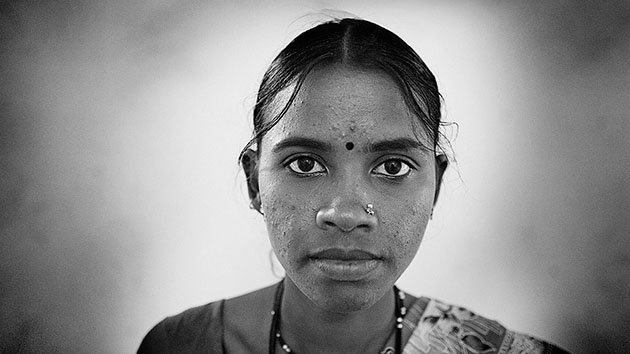
Manuala Betwa, 36 years old, from the village of PandharkawadaMichael Francis McElroy
Over the past decade, India has been gripped by a devastating water crisis. Farmers make up an estimated 70 percent of the country’s population, and for them the consequences of the drought have been dire: Overwhelmed by chronic lack of water, failed crops, and growing debts, more than 200,000 farmers have committed suicide since 1997.
Their families often find them either hung or poisoned by pesticides they’ve chosen to ingest. The widows left behind struggle to support their children, working as landless laborers for as low as 100 rupees ($2) a day and battling creditors that come to collect money they claim to have lent their husbands. This slideshow features portraits of widows from Maharashtra, one of the three most suicide-ridden states in the nation. They represent only a fraction of the hundreds of thousands left behind.
